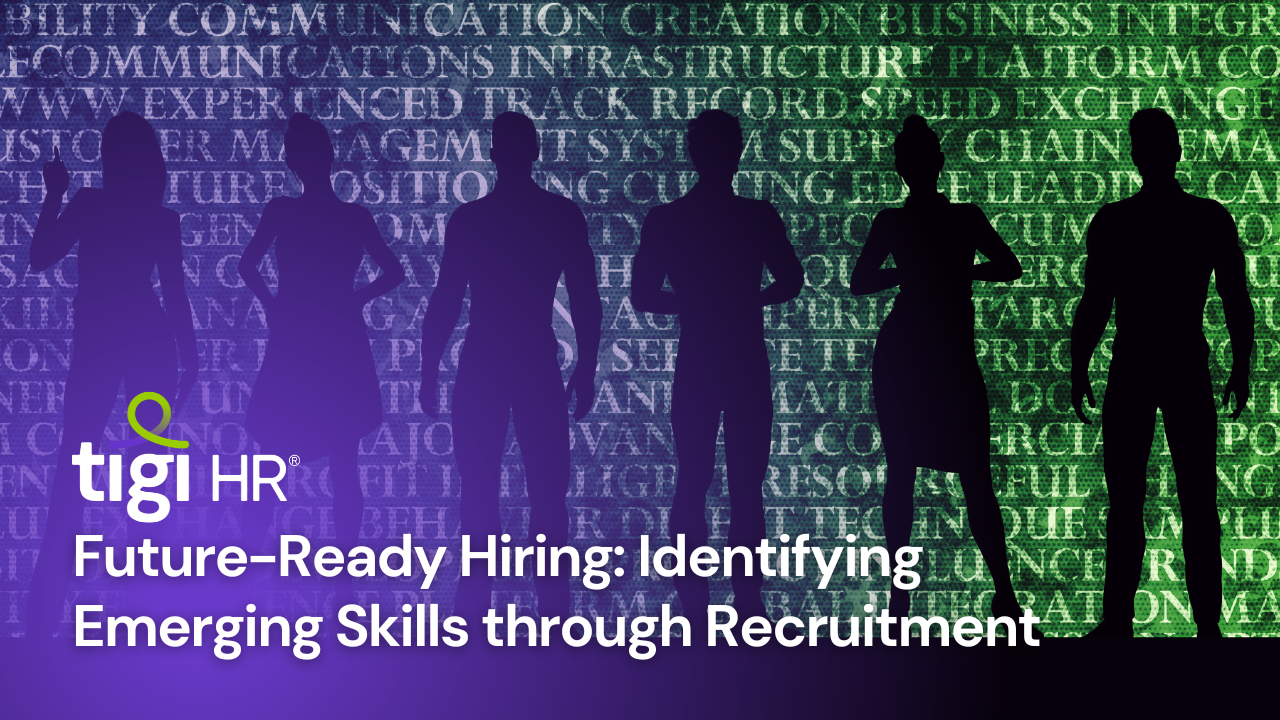In today’s rapidly evolving job market, the traditional approach to hiring has been rendered insufficient. Employers are now faced with the challenge of identifying candidates equipped with not just current skills, but also those that are primed for the future. This necessitates a shift towards a future-ready hiring strategy, where the focus lies in identifying emerging skills through the recruitment process.
The Landscape of Emerging Skills:
The digital age has ushered in a new era of technological advancements, bringing with it a host of emerging skills that are redefining industries. From artificial intelligence and machine learning to blockchain and data science, these skills are not just optional add-ons anymore – they’re becoming integral to business success. The ability to adapt, learn, and apply these emerging skills has become a crucial determinant of an organization’s ability to stay competitive in the market.
Recruitment’s Role in Identifying Emerging Skills:
To stay ahead in this dynamic landscape, organizations need a workforce that’s not only proficient in current skills but is also adaptable to new challenges. Traditional hiring methods that focus solely on past experiences and current skillsets are inadequate. Instead, a forward-looking approach is required, one that identifies a candidate’s potential to learn and grow along with the company’s changing needs.
Strategies for Future-Ready Hiring:
Skill Emphasis over Experience: While experience is valuable, placing too much emphasis on it can lead to overlooking candidates with the potential to acquire emerging skills quickly. Prioritizing a candidate’s ability and willingness to learn new skills can ensure a workforce ready to take on the challenges of tomorrow.
Assessment of Adaptability: Assessing a candidate’s adaptability to change is paramount. Questions that gauge a candidate’s response to new technologies, their approach to unfamiliar situations, and their appetite for continuous learning can offer insights into their future readiness.
Scenario-Based Interviews: Incorporating scenario-based interviews can help evaluate a candidate’s problem-solving skills, critical thinking abilities, and creativity. Presenting hypothetical situations related to emerging technologies can reveal a candidate’s capacity to analyze and innovate.
Collaboration and Communication: Emerging skills often require collaboration across diverse teams. Candidates who can effectively communicate and collaborate with colleagues from various backgrounds demonstrate the agility needed to excel in a future-focused environment.
Focus on Soft Skills: While technical skills are vital, soft skills are equally crucial. Skills like adaptability, creativity, emotional intelligence, and resilience contribute to a candidate’s ability to navigate uncertain terrain effectively.
Learning Agility: In a rapidly changing landscape, learning agility – the ability to learn quickly and apply new knowledge effectively – is a prized skill. Assessing a candidate’s learning trajectory from past experiences can provide insights into their potential to acquire emerging skills.
Continuous Learning Mindset: Candidates who demonstrate a commitment to continuous learning are more likely to embrace emerging skills. Look for candidates who have pursued additional certifications, attended workshops, or engaged in self-paced learning.
Benefits of Future-Ready Hiring: Implementing a future-ready hiring approach offers several benefits to organizations:
Enhanced Adaptability: A workforce equipped with emerging skills is better prepared to adapt to industry changes and technological advancements.
Competitive Edge: Organizations that embrace emerging skills early gain a competitive edge by being at the forefront of innovation.
Reduced Skill Gap: Focusing on future-ready skills minimizes the skill gap, reducing the need for extensive training and upskilling efforts.
Talent Retention: Employees appreciate opportunities to learn and grow. Future-ready hiring fosters an environment of continual development, leading to higher retention rates.
Innovation and Problem-Solving: Emerging skills often drive innovation. A workforce with these skills is better equipped to tackle complex challenges and devise innovative solutions.
Conclusion on Future-Ready Hiring :
As the job market evolves, organizations must evolve their hiring strategies in tandem. Future-ready hiring, with a focus on identifying emerging skills, ensures that businesses are equipped with a dynamic workforce capable of navigating the uncertainties of the future. By valuing adaptability, learning agility, and soft skills alongside technical prowess, organizations can forge a path to sustained success in the ever-changing landscape of tomorrow.
How can job seekers leverage varied resources for successful career advancement?
Find Supercharge Your Job Search: Leveraging Recruitment Resources for Success
To excel in today’s competitive job market, job seekers must utilize a range of resources. Online job boards like LinkedIn, networking, recruitment agencies, and company career pages offer diverse opportunities. Professional organizations, alumni networks, and social media also play crucial roles, enhancing job search success. Combining these resources boosts visibility and connections, leading to career advancement.
Find trusted recruitment agencies : Click here





